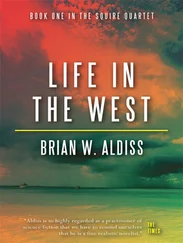This was his brother’s first attempt at anything like an historical narrative, his first step towards the historian he was later to become. To lend the original narrative a clearer perspective, Joseph had inserted a few passages later, generally of a reflective nature. For an instance, the battle of Dien Bien Phu in 1954 was mentioned.
First came the title. Joseph had made it deliberately grandiose.
A BRIEF HISTORY OF THE CAMPAIGN OF
2ND BRITISH DIVISION
UNDER GEN. NICHOLSON
AGAINST THE JAP ARMY AND
THE RECONQUEST OF MANDALAY
1944–1945
By Signalman Joseph Winter
Nights were filled with gunfire when the various units of 2 Div crossed the River Chindwin, against stiff opposition from the Japs situated on the eastern bank. Those nights were climatologically beautiful. The Burmese moon is like no other moon. It woke unvoiceable yearnings in the men involved in the great struggle.
Of all those beautiful dangerous nights, one in particular stands out.
I had had to be away from my unit, and a driver was sent in a Jeep to collect me and catch up with the advance. He was in no mood to hurry; I could not make him hurry; and darkness overtook us before we had done much more than start on our way forward. The sun plunged down into the earth and the stars immediately shone forth overhead, streaming along in the grip of the galactic current.
We were two insignificant creatures in a machine on a plain that ran clear to the Irrawaddy. The driver had no intention of driving by night. We ate K-rations and slept one on either side of the Jeep rolled in blankets, with the marvellous sky unfettered overhead. Far from being dwarfed by it, I felt that it filled me and made me vast; I was indivisible from it. A war was passing over the starlit land with its ‘bright and battering sandal’, and I was part of its great process.
Burma was beautiful, a country worth fighting for. Nothing else was asked – at the time. I was eighteen years of age.
We woke at dawn with a bird calling. We were chilly in our thin uniforms before the sun came up. We brewed up mugs of tea, ate a hunk of bread, and moved on. ‘Bloody cold,’ we said.
Nothing was to be seen all round us but plain and, distantly, tops of trees. I found no way in which we could share the magnificent experience of the night; perhaps such exciting experiences are always enjoyed alone – unless one has a girl there. In any case the driver was a man of few words.
The track across the plain led us to the River Chindwin, where a Bailey bridge had been built. It was strongly guarded. Men lounged about, brown-naked to the waist, smoking, rifles on their shoulders, sweat-rags tied round their necks. We called out cheery greetings as we crossed that splendid river, its name honoured in the East. Fine dust hung in the air, sun shone on the water as it ran dark and flat between its sandy banks. It was as peaceful a scene as you could wish. Only two nights earlier, men had died at that spot.
Myingyang, the town on the far side of the river, had been almost completely destroyed in the fighting. Smoke still drifted among the ruined trees. Everything – remains of houses and bungalows – took on tones of black; smoke issued from their gaping black mouths. Tree stumps still burned quietly.
Black also were the piles of corpses gathered up neatly here and there and now left to ripen like grapes in the sun. They were swollen as if about to burst, and stank with the powerful smell of death. So much for the remains of the Japanese Army.
The Jeep driver stopped at one of the biggest piles. He went over to it and helped himself to a pair of boots from one of the dead. I cannot say how this offended me. A fat porker was feeding among the corpses, scarcely able to waddle. The driver, kicking the animal out of the way, beckoned me over. I would not leave the Jeep. He selected the pair of boots he wanted, dragging them off the corpse, kneeling in the sunlight to do so. He fitted the boots on to his own feet before coming back to the vehicle. I could not look the man in the eye.
To everything that happened at that period in time, an extra weight of significance was added. It was as though I travelled back through time to witness the traits of man and nature at their most basic, as though our movement through trees was also a movement through centuries. My understanding of the world, which had hitherto been rather childish, or child-based, advanced greatly, so that everything that happened, down to the movement of my own muscles, was surrounded by a nimbus of truth, in which the ugly was perceived as being as sacred as the beautiful. The blessed sunlight contributed to this revelatory mood.
I was a little mad in the nights, as in the days. The world turned – I heard its axis rotate. One night early in the campaign we were bivouacked by the improvised road which, in the wet season, served as a river bed. A Burmese moon shone through the trees – the moon seeming always to be at the full, when Chinese Buddhist thought has it that the Yin (female) influence is at its most strong. I could not sleep, pent in my little bivouac, for an overwhelming feeling of excitement, so was forced to get up and walk among the dust-saturated trees and shadows. Muffled trucks and guns rumbled out of the silver darkness and into the opaque distance. I stood by the road, unable to leave it, letting the dust settle on me. The behemoths, with dim orange headlights for eyes, were the sole occupants of this world.
Of course what I longed for then – there and then – in my hot little heart, was love or, less abstractly, a woman to love.
Greater than the Chindwin is the river into which it flows, the unmeasurable, immemorial Irrawaddy. The waters of the Irrawaddy are fed both by tributaries rising nearby and distant tributaries which rise in regions of rock and ice up in the Himalayas, so that, like life itself, the river consists of alternating currents of warm and cold streams; and no swimmer can tell which he will encounter next, the warm or the cold. Just to stand looking at the Irrawaddy after the weeks and miles of drought we had put behind us was to drink deep, and to feel its flow as something profound – a main artery in the life of the planet.
For a brief period after rejoining my unit I was able to swim alone in the great river, flinging myself in from the sandy bank, for once unmindful of Japs, snakes, and signal offices. The river immediately took hold of one with its dark effortless power. A river-steamer had been sunk in mid-stream, and lay at an angle on the river-bed with all its superstructure in the sunlight. Long tresses of weed, anchored to its bows, pointed tremulously downstream. It was possible to reach the boat after prolonged battles with the currents, and the water, green as lizard skin, suddenly gave way to scaly hull. With a heave, I was there, over the railings and lying fish-naked on the slant of deck. Ferns and small trees grew on the deck house, giant bees toasted themselves on the sere planking. There it was possible to squat, dangling one hand in the race, a part of that stationary voyage upstream, Captain of the Wreck.
Solitude was precious, because rare. Most of the time, we men of the Forgotten Army crowded together. Life was gregarious for safety reasons. Those of us on ‘S’ Relief grew to know each other very well. Despite our uncertain movements, our routine was fixed. It went in three-day cycles: first day, afternoon shift from 1 p.m. till 6; second day, morning shift from 8 a.m. till 1 p.m., and night shift from 6 p.m. till 8 the next morning; third day, off duty after 8 a.m. to sleep, probably with guard or similar duties in the afternoon or evening. This routine, or something like it, was to be mine for almost three years, in action or out of it. In Burma, night duty generally meant no sleep at all, with signals being passed all the time. Sometimes, it was possible to doze for half-an-hour, head on your arm at the table; more rarely, you could curl up under a blanket in a corner of the office for an hour.
Читать дальше










